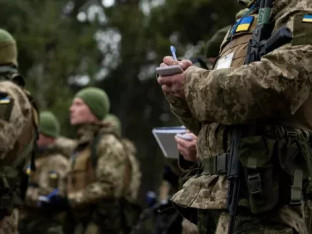Can a discharged serviceman be mobilized again?
In this article, we will consider the question of whether a discharged serviceman can be re-mobilized. This question is relevant for many former servicemen who have already completed their service and were discharged. We will provide a legal analysis of the situation and recommendations on how to protect your rights in case of repeated mobilization.
Legal basis for mobilization of discharged servicemen
Ukrainian legislation provides for the possibility of mobilization of citizens in case of general or partial mobilization. This may also apply to discharged servicemen who have experience of service and may be called up to reinforce the armed forces in case of a threat to national security.
However, there must be good reasons for re-mobilization, and it must meet the conditions established by law. It is important to know what circumstances can lead to re-mobilization and how to protect your rights.
The main circumstances for re-mobilization
- Announcement of general mobilization. In the event of general mobilization, all citizens, including discharged military personnel, may be called to service.
- Availability of necessary skills. If a discharged serviceman has special skills or experience that are necessary to perform certain tasks, he can be re-mobilized.
- Health condition. If the state of health of a discharged serviceman allows him to perform his duties and he has no medical contraindications, this may be a ground for re-conscription.
- Changes in legislation. If changes are made to the legislation on mobilization, discharged servicemen may be subject to new conscription rules.
Legal Assistance for Soldiers: Essential Support During War
Legal assistance during war is essential for both military personnel and their families, as legal advice during war covers a wide range of issues related to protecting their rights. A lawyer during hostilities provides military lawyer services, including everything from drafting reports for leave or discharge to handling issues involving medical commissions. Military lawyer are critical in representing the interests of soldiers, especially during legal disputes. A wartime lawyer provides advice on leave, dismissals, and other legal issues that arise during the war to ensure that the rights of the military and their families are fairly protected.
Features and conditions of re-mobilization
- Re-mobilization must meet the conditions established by law and be justified.
- It is important to know the current changes in legislation and be prepared for possible changes in your status.
- In case of mobilization, you have the right to legal advice to protect your rights.
Why should you contact us?
Legal advice. We provide a detailed legal analysis of your situation and help you prepare documents in case of repeated mobilization.
Our clients receive a professional legal opinion and recommendations for further action. We provide full support at all stages of your case.
Additionally, we offer online consultations, which allows you to get the necessary information without visiting the office. It is convenient and fast.
Thanks to our team, you will receive the support of professionals who have experience in dealing with such issues and are ready to protect your rights.
Impact of re-mobilization on your rights
Repeated mobilization can significantly affect your rights and obligations related to military service. It is important to know what circumstances may lead to re-mobilization and how to protect your rights. Legal advice can help you determine the best course of action in your situation and avoid possible violations of the law.
Military Lawyer Services: Protecting Rights in Times of Conflict
Military lawyer online platforms offer quick solutions to legal problems that may arise during combat or in peaceful settlements. Military lawyer Kyiv offers local support, while a lawyer in war can also provide online assistance. Military lawyer services ensure professional support and protection of soldiers' rights throughout their military service.
Typical mistakes in understanding the right to re-mobilization
- Insufficient familiarization with changes in legislation. It is important to be aware of current changes that may affect your right to mobilization.
- Ignoring the procedure for appealing a call-up. If you do not agree with the decision to re-conscript, it is important to appeal it in a timely manner.
- Failure to consult a lawyer. This can lead to a misunderstanding of your rights and obligations.
Tips for resolving the issue of re-mobilization as soon as possible
In order to successfully resolve the issue of re-mobilization, we advise you to prepare all the necessary documents confirming your status in advance, seek legal advice, and respond to changes in legislation in a timely manner. This will help you avoid possible legal consequences and ensure that your case is considered fairly. Our team is ready to support you at all stages of this process.
Frequently asked questions
Question
Can a discharged serviceman be mobilized again?
Answer
Yes, in case of general mobilization or if a discharged serviceman has the necessary skills, experience or health condition that meets the requirements, he may be re-mobilized.
Question
How to protect my rights in case of repeated mobilization?
Answer
It is important to keep all documents confirming your status, keep abreast of changes in legislation, and seek legal advice in case of disputes or disagreement with the call-up.
Question
Is it possible to appeal against re-conscription?
Answer
Yes, if you believe that your re-conscription is unlawful, you have the right to appeal it in accordance with the procedure established by law. To do so, you should prepare all the necessary documents and seek legal advice.
Re-mobilization of a discharged serviceman is possible under conditions of general or partial mobilization. It is important to complete all the necessary documents in a timely manner and seek legal advice to ensure a successful resolution of your issue. Our team is ready to provide you with support and assistance at all stages of this process to protect your rights and avoid negative consequences.




































